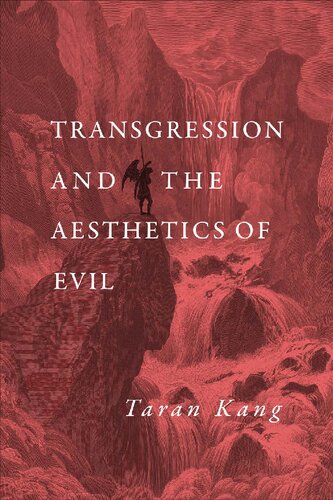

Most ebook files are in PDF format, so you can easily read them using various software such as Foxit Reader or directly on the Google Chrome browser.
Some ebook files are released by publishers in other formats such as .awz, .mobi, .epub, .fb2, etc. You may need to install specific software to read these formats on mobile/PC, such as Calibre.
Please read the tutorial at this link: https://ebookbell.com/faq
We offer FREE conversion to the popular formats you request; however, this may take some time. Therefore, right after payment, please email us, and we will try to provide the service as quickly as possible.
For some exceptional file formats or broken links (if any), please refrain from opening any disputes. Instead, email us first, and we will try to assist within a maximum of 6 hours.
EbookBell Team

4.7
56 reviewsHow do we perceive evil? How do we represent evil? In Transgression and the Aesthetics of Evil, Taran Kang examines the entanglements of aesthetics and morality. Investigating conceptions and images of evil, Kang identifies a fateful moment of transformation in the eighteenth century that continues to reverberate to the present day. Transgression, once allocated the central place in the constitution of evil, undergoes a startling revaluation in the Enlightenment and its aftermath, one that needs to be understood in relation to emergent ideas in the arts.
Taran Kang engages with the writings of Edmund Burke, the Marquis de Sade, Friedrich Nietzsche, and Hannah Arendt, among others, as he questions recent calls to "de-aestheticize" evil and insists on a historically informed appreciation of evil’s aesthetic dimensions. Chapters consider the figure of the "evil genius," the paradoxical appeal of the grotesque and the disgusting, and the moral status of spectators who behold scenes of suffering and acts of transgression. In grappling with these issues, Transgression and the Aesthetics of Evil questions the feasibility and desirability of insulating the moral from the aesthetic.